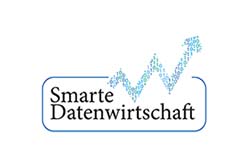RAKI
Rapidly Explainable Artificial Intelligence for Industrial Plants
Application industry: Production; process industry
Technology area: (Mathematical) optimization and planning; machine learning
RAKI is combining different machine learning approaches to improve the analysis of large amounts of industrial data and thus reduce the cost of optimizing plants using artificial intelligence (AI). At the same time, RAKI ensures that the learning outcomes of AI are comprehensible (explainable) to people.
The baseline
Mechanical and plant engineering accounts for a large share of German exports, but competition with other industrial nations is growing. To succeed in this market, German products must be manufactured more efficiently and effectively. One promising approach is to evaluate industrial data with the help of artificial intelligence to optimize plants and processes. However, enormous amounts of data are generated both in production and in the operation of machines. Conventional optimization methods quickly reach their limits in this area – being too slow and therefore uneconomical.
The project goal
RAKI combines different machine learning methods for the first time: Inductive Logic Programming (ILP) and Reinforcement Learning (RL). ILP is a method that is particularly well-suited to involve people in the learning process and to translate the results into natural language that can be understood by humans. This makes the analysis results more transparent. RL works according to the trial and error principle, the system learns autonomously and is enhanced by feedback, which accelerates the learning process. The combination of these two approaches makes it possible to analyse even extremely large amounts of data and to make comprehensible data-based decisions in a short time. RAKI is developed and tested in close cooperation with the industry, including the configuration (adaptation) of industrial plants.
Application and practical benefit
RAKI accelerates the machine learning processes when it comes to processing large amounts of industrial data and promises significant cost savings. The solution is designed to be open to all industries, thus enabling the development of applications and smart services in other sectors of the economy, for example, in biomedicine, power generation, or the healthcare sector.
Term: 1 September 2019 to 31 August 2022
Consortium: AI4BD Deutschland GmbH (lead member), University of Paderborn, Siemens AG, Leipzig University
Contact:
Dr. Martin Voigt
AI4BD Deutschland GmbH
E-Mail: martin.voigt@ai4bd.com
Website: www.raki-projekt.de
- Recommend this page:
- Print view
